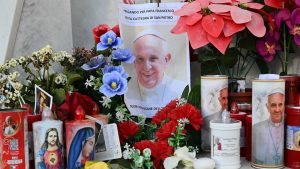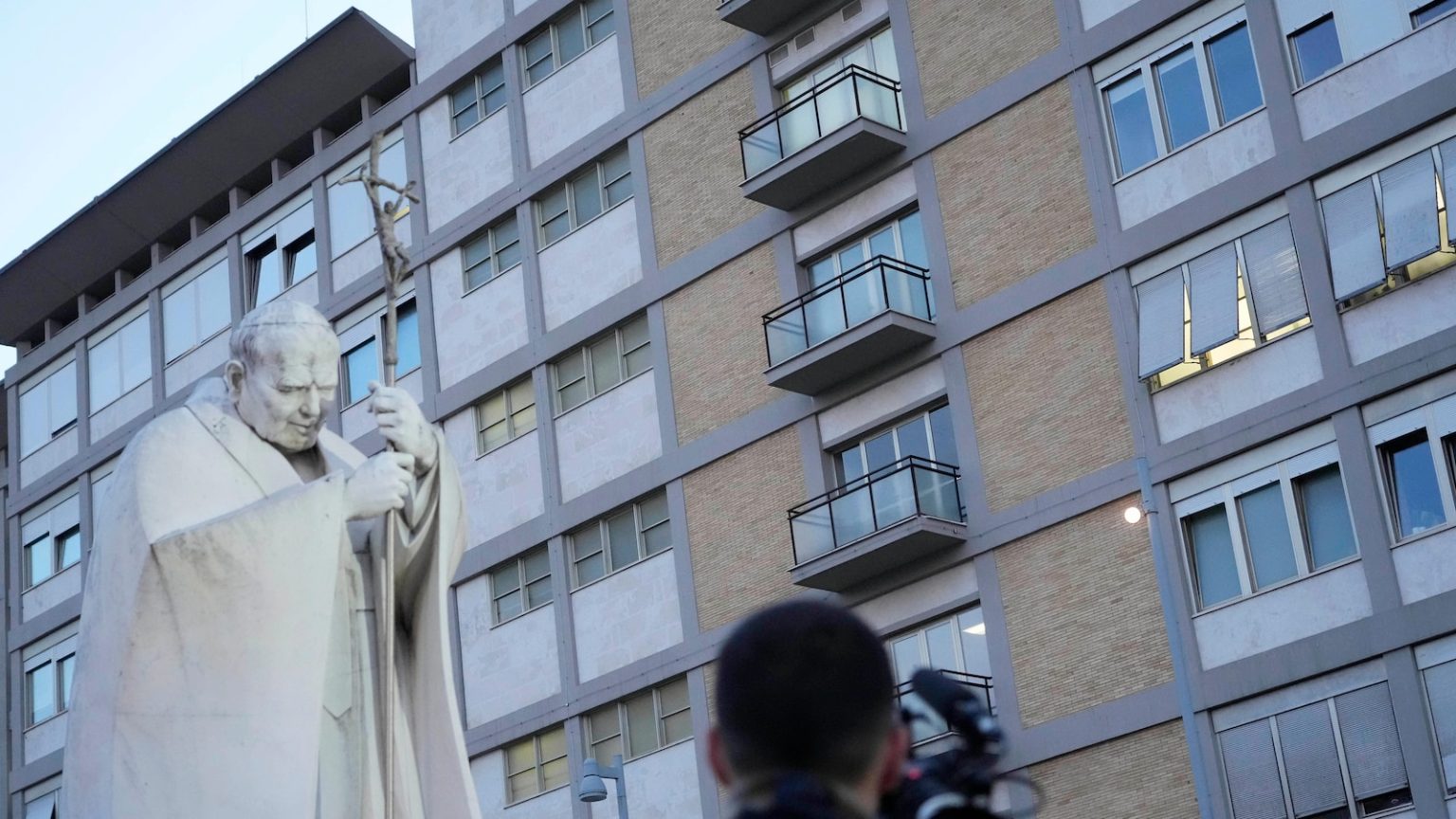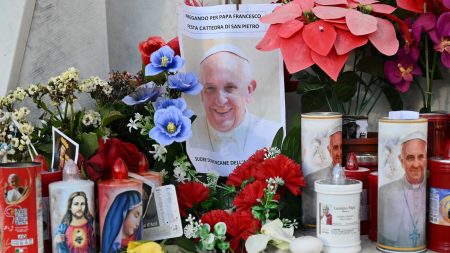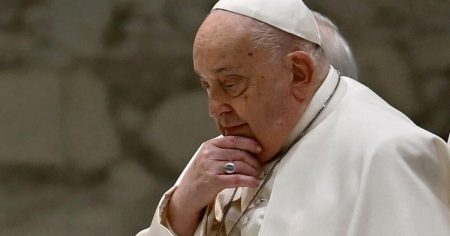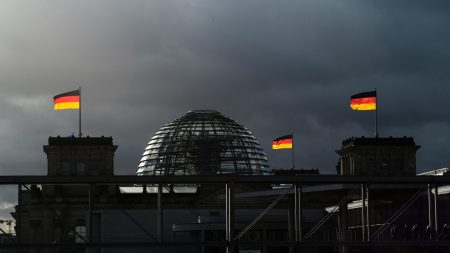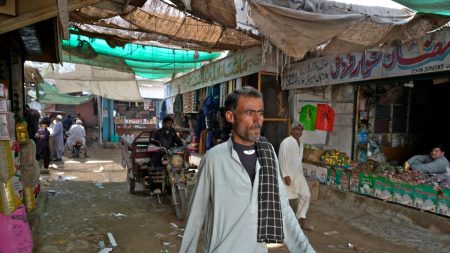Pope Francis Resting After Respiratory Crisis and Blood Transfusions
Pope Francis spent a peaceful night following a respiratory crisis and blood transfusions, according to a brief update from the Vatican on Sunday. The 88-year-old pontiff, who has a history of lung issues due to the removal of part of one lung in his youth, remains in critical condition. Vatican spokesman Matteo Bruni provided a concise statement, but it did not specify whether the pope was mobile or eating breakfast. This update comes after a tense period during which Francis experienced a prolonged asthmatic respiratory crisis on Saturday morning while being treated for pneumonia and a complex lung infection.
A Critical and Delicate Medical Situation
On Saturday, Pope Francis faced a severe respiratory crisis, which was further complicated by his pre-existing lung condition. The Vatican reported that he received “high flows” of oxygen to assist his breathing, a clear indication of the gravity of his situation. Additionally, Francis underwent blood transfusions after medical tests revealed low platelet counts, which are essential for blood clotting. Despite these interventions, the pope was described as being in more pain compared to the previous day, though he remained alert and spent the day in an armchair.
The Vatican’s Limited but Significant Updates
The Vatican’s communication regarding the pope’s health has been characteristically restrained, reflecting the institution’s tradition of providing only essential information. Matteo Bruni’s one-line statement on Sunday avoided speculation about Francis’ mobility or dietary status, maintaining the careful balance between transparency and privacy that the Vatican often upholds in such sensitive matters. However, the earlier statement on Saturday painted a clearer picture of the pontiff’s condition, noting his increased pain and the reserved prognosis from his medical team.
The Global Community Holds Its Breath
As news of Pope Francis’ health crisis spread, people around the world began to pray for his recovery. The pontiff’s global influence and the deep affection many hold for him have made this a moment of collective concern. From cathedrals to social media, expressions of solidarity and hope have flooded in, reflecting Francis’ unique ability to inspire and unite people across cultures and faiths. The sense of urgency and fragility surrounding his condition has only intensified these outpourings of support.
The Medical and Personal Significance of the Pope’s Condition
Francis’ age, fragility, and history of lung disease make his current condition especially precarious. Medical experts have emphasized that the primary concern is the risk of the infection spreading to his bloodstream, which could lead to sepsis—a potentially life-threatening complication. The pope’s resilience in the face of previous health challenges has been remarkable, but the combination of his advanced age and the complexity of his current condition has left many bracing for the worst.
A Life of Service and the Weight of This Moment
As Pope Francis faces this critical juncture, the world is reminded of his tireless dedication to his faith and his mission of compassion and reform within the Catholic Church. His journey from a young man who lost part of his lung to becoming one of the most influential religious leaders of our time is a testament to his strength and resolve. This health crisis, while alarming, also invites reflection on the profound impact Francis has had on countless lives and the enduring legacy he continues to build. For now, the world waits with bated breath, holding onto hope for his recovery and the continued inspiration he embodies.


